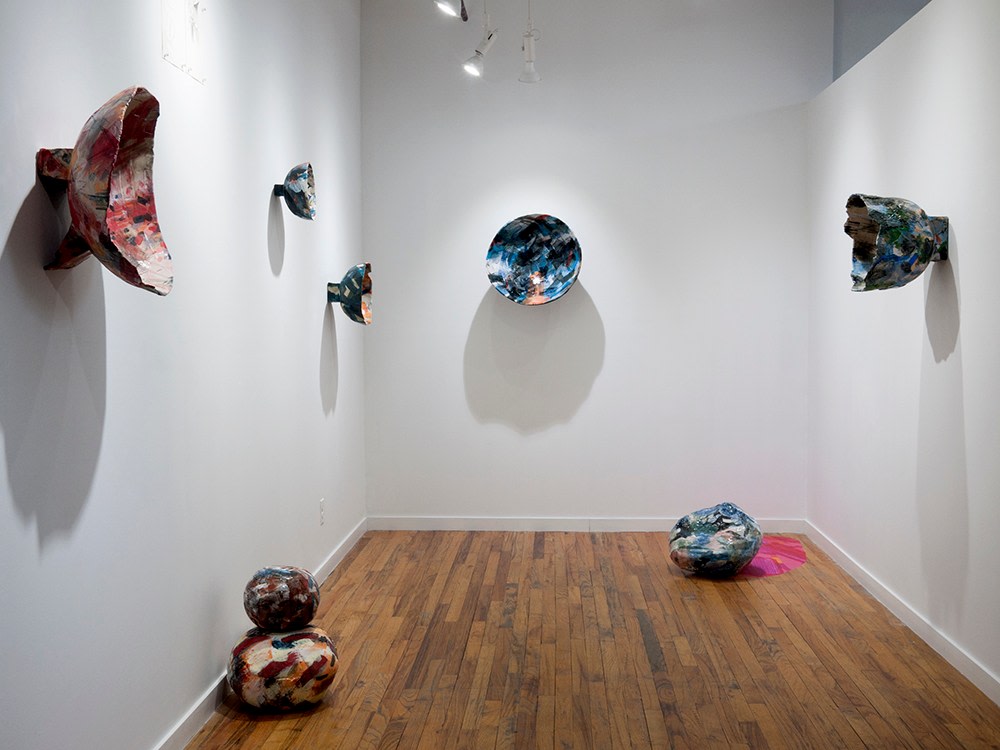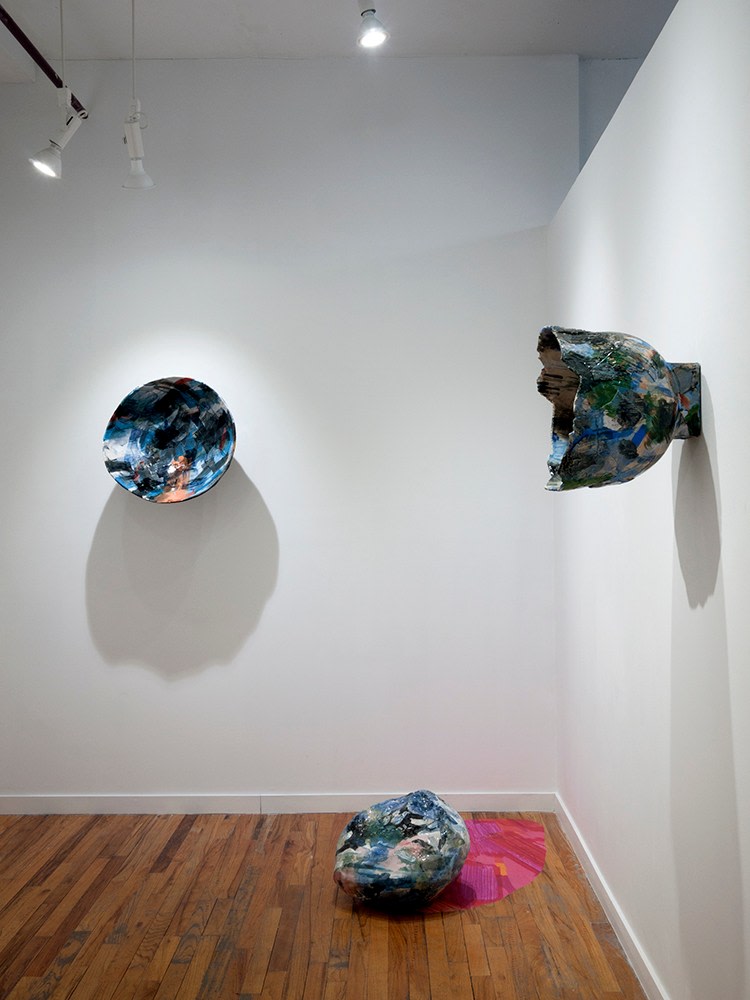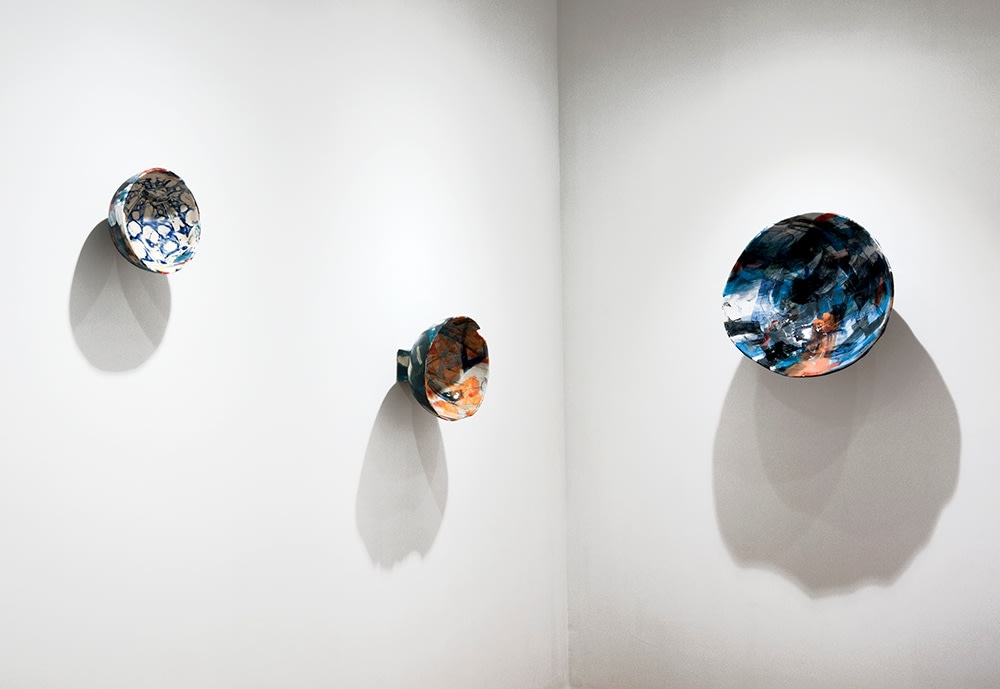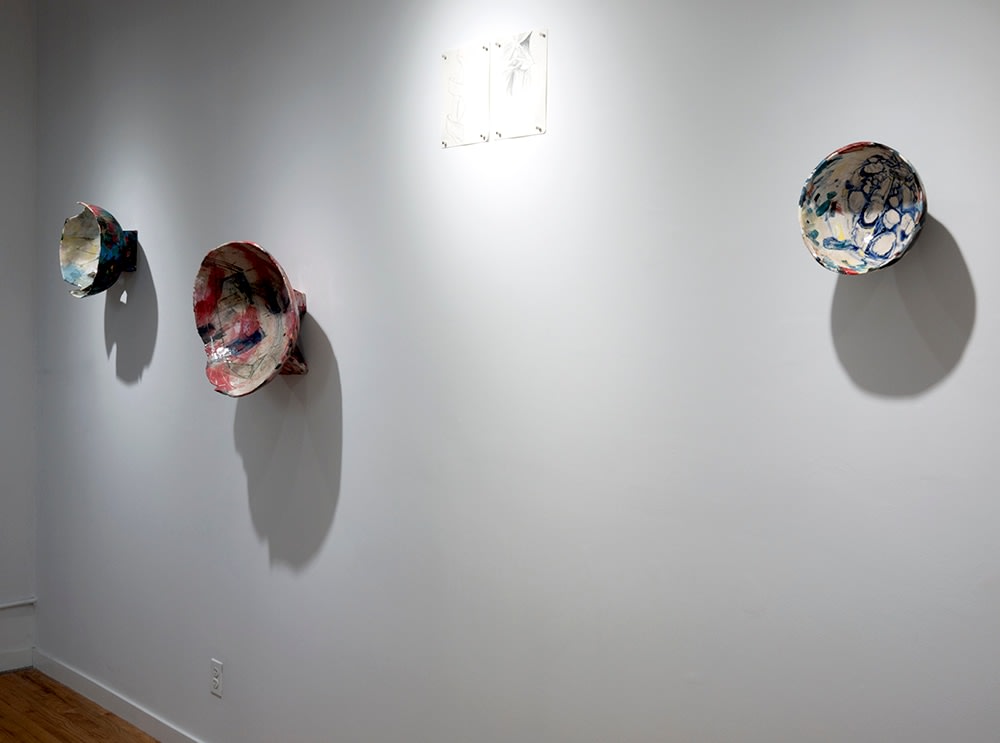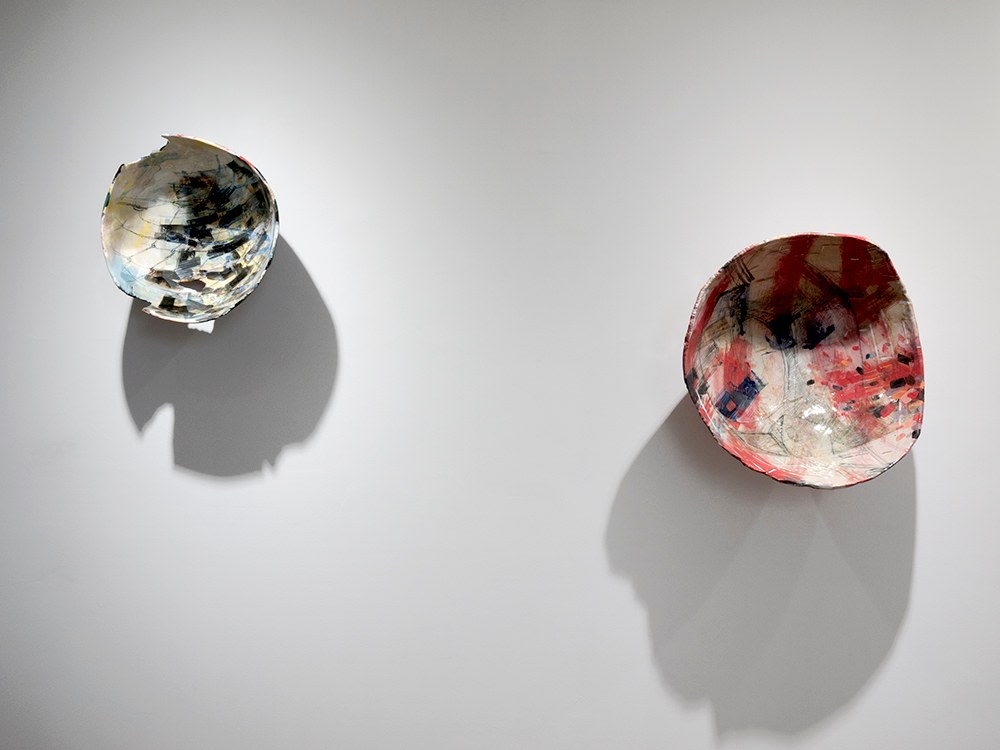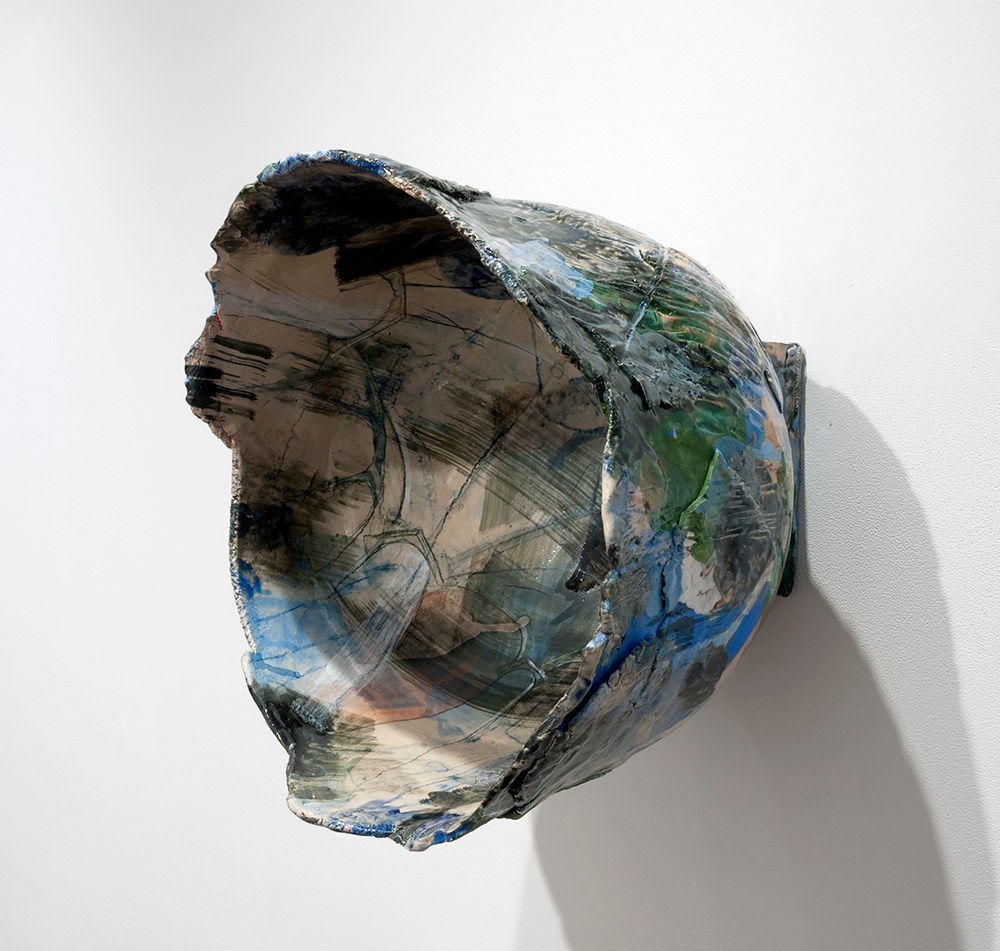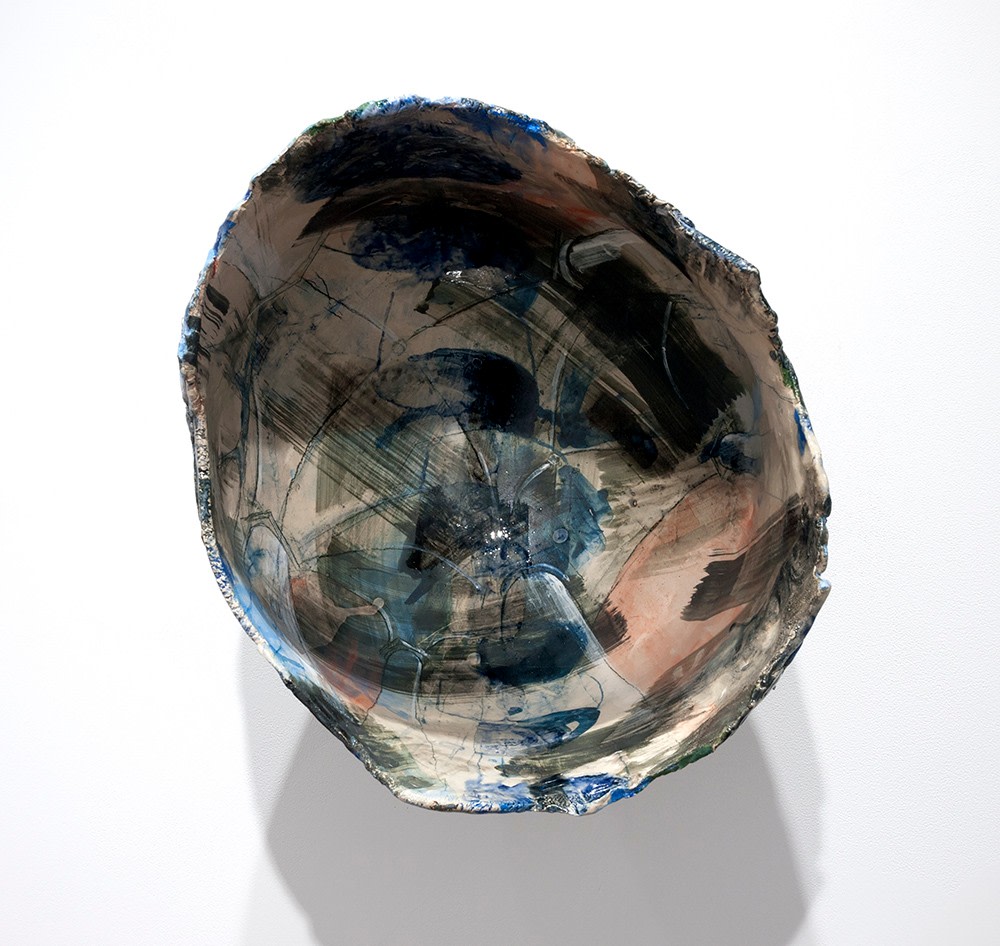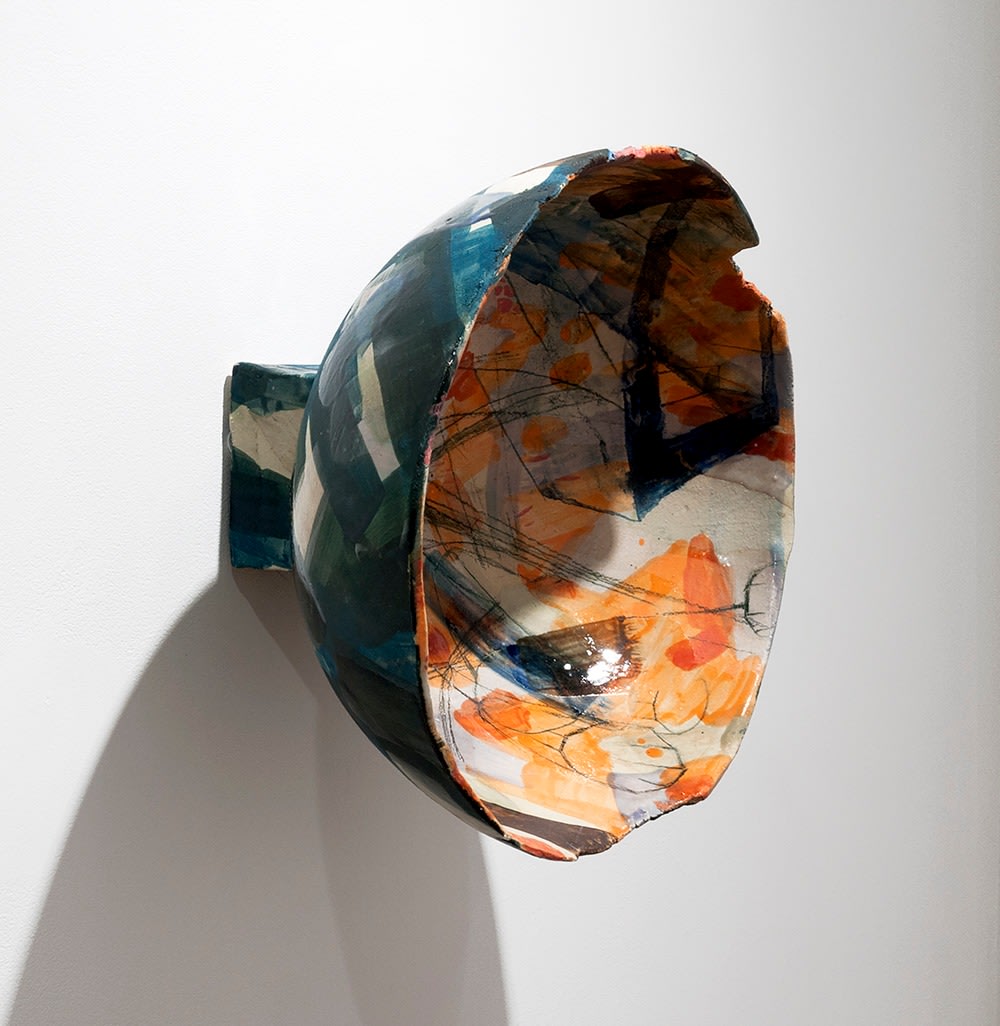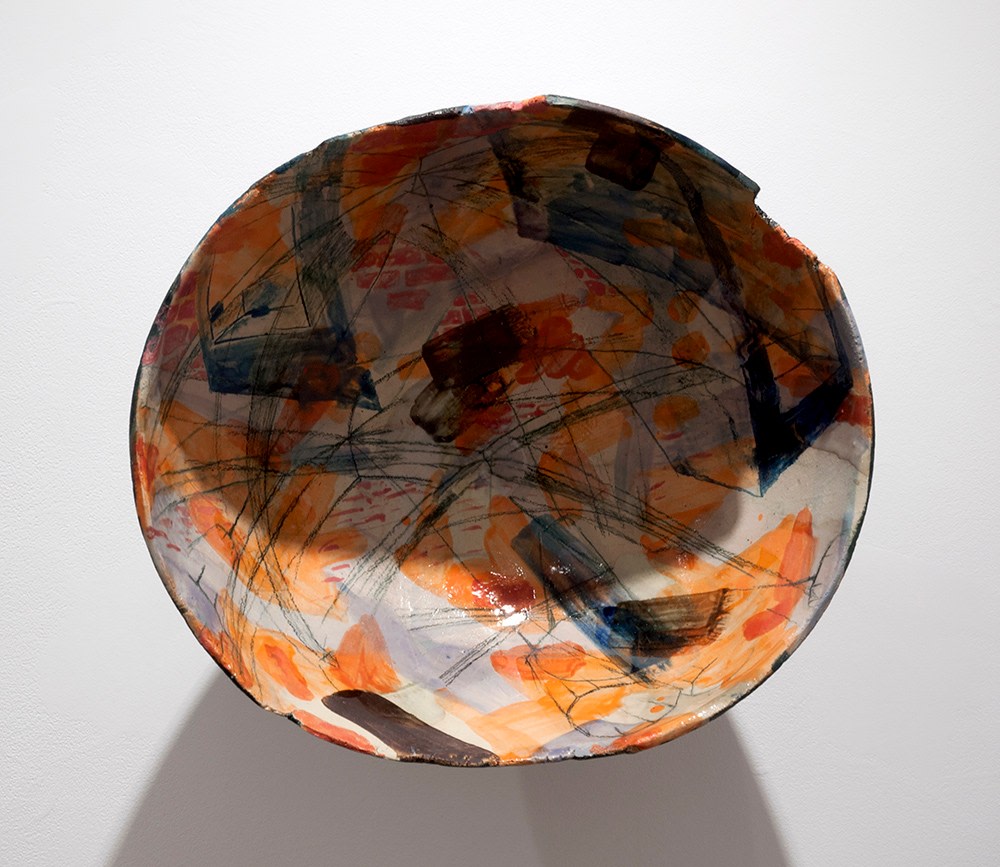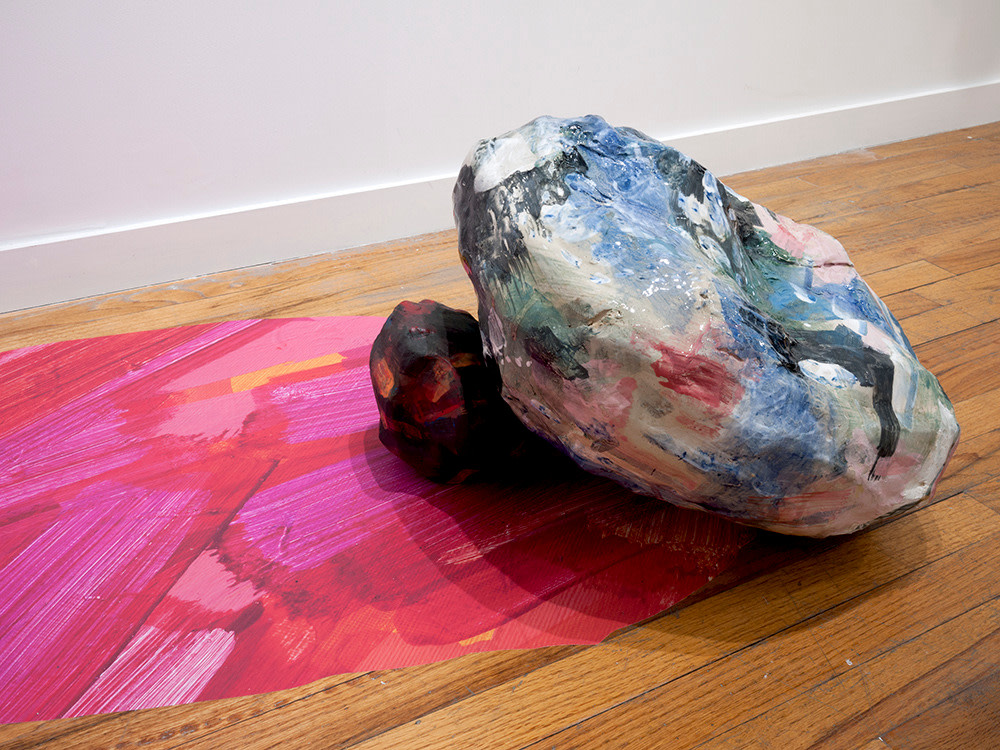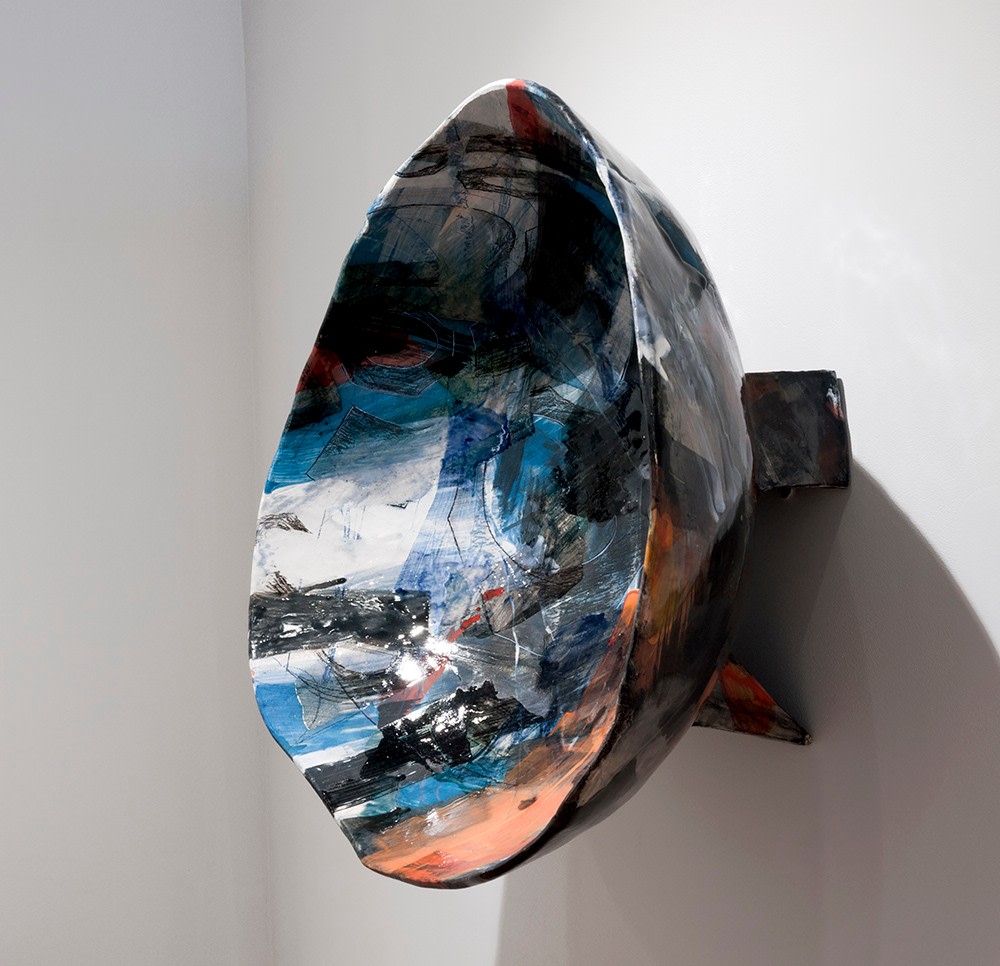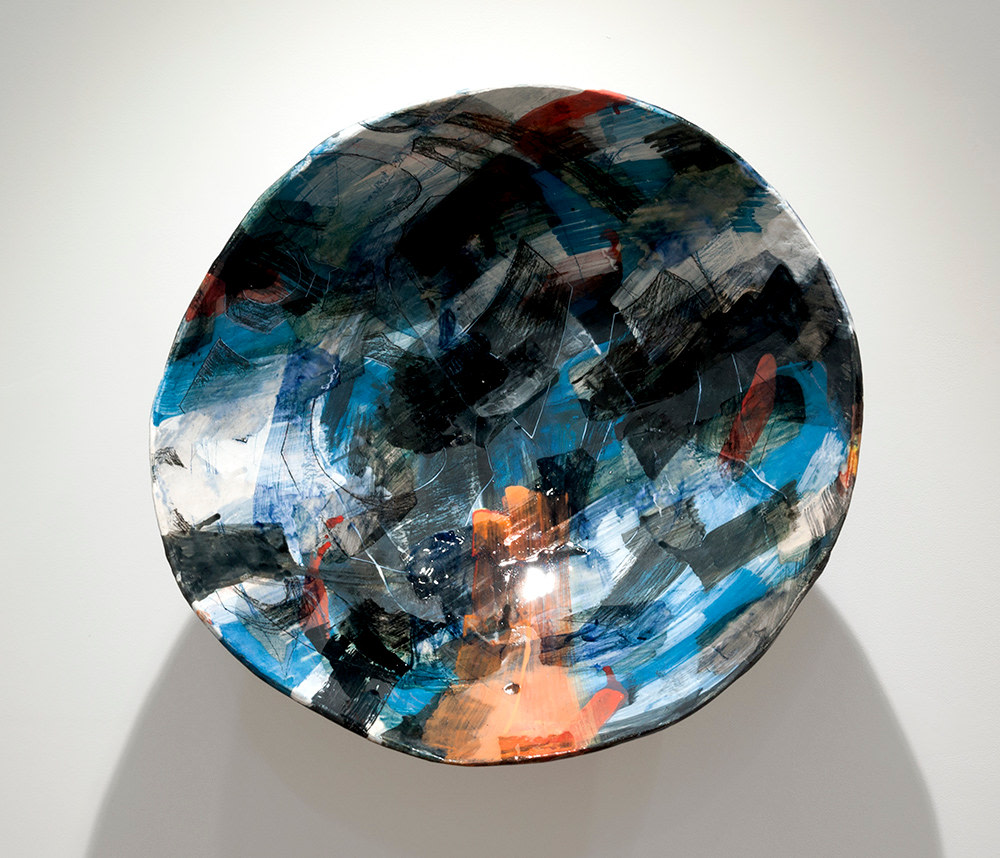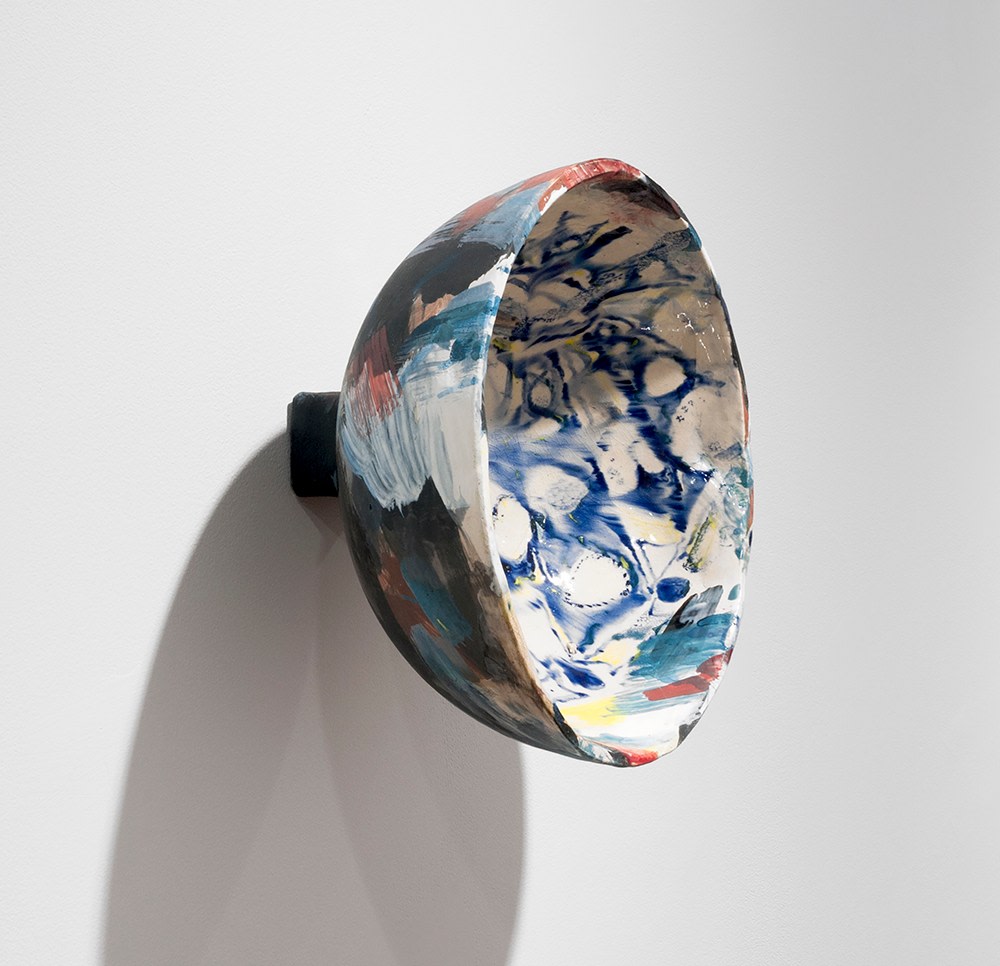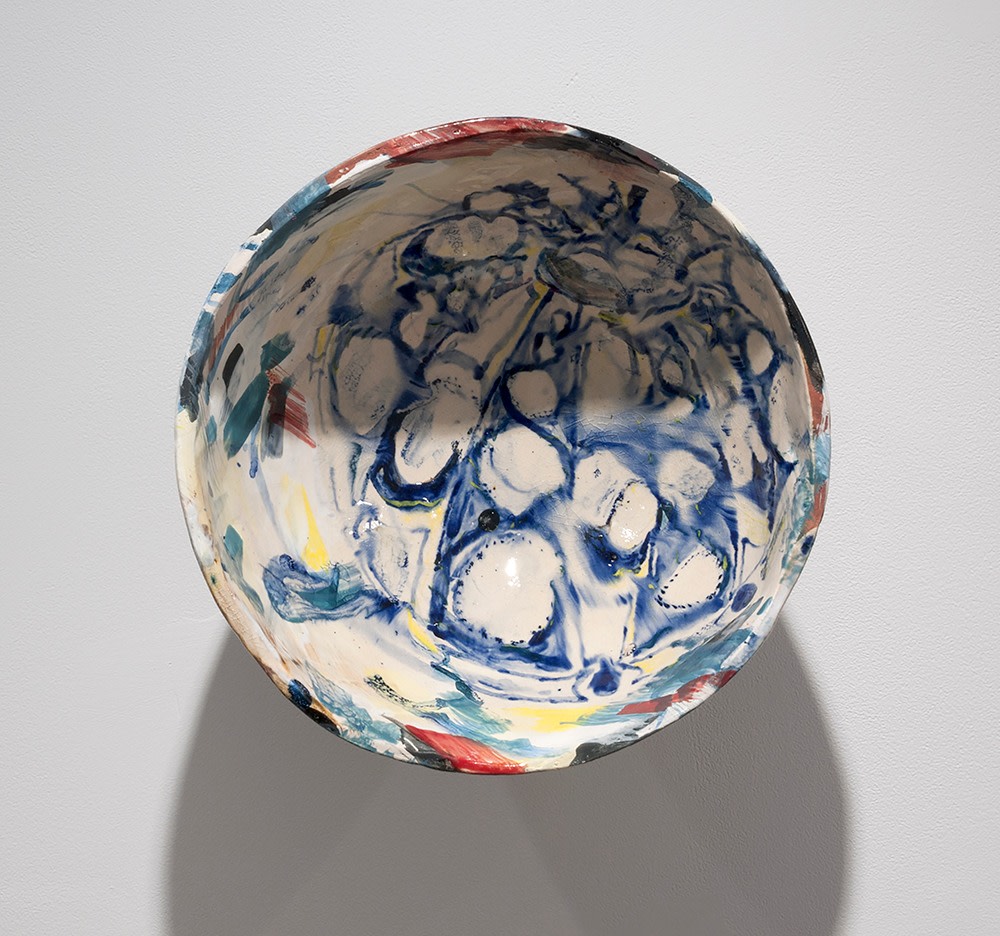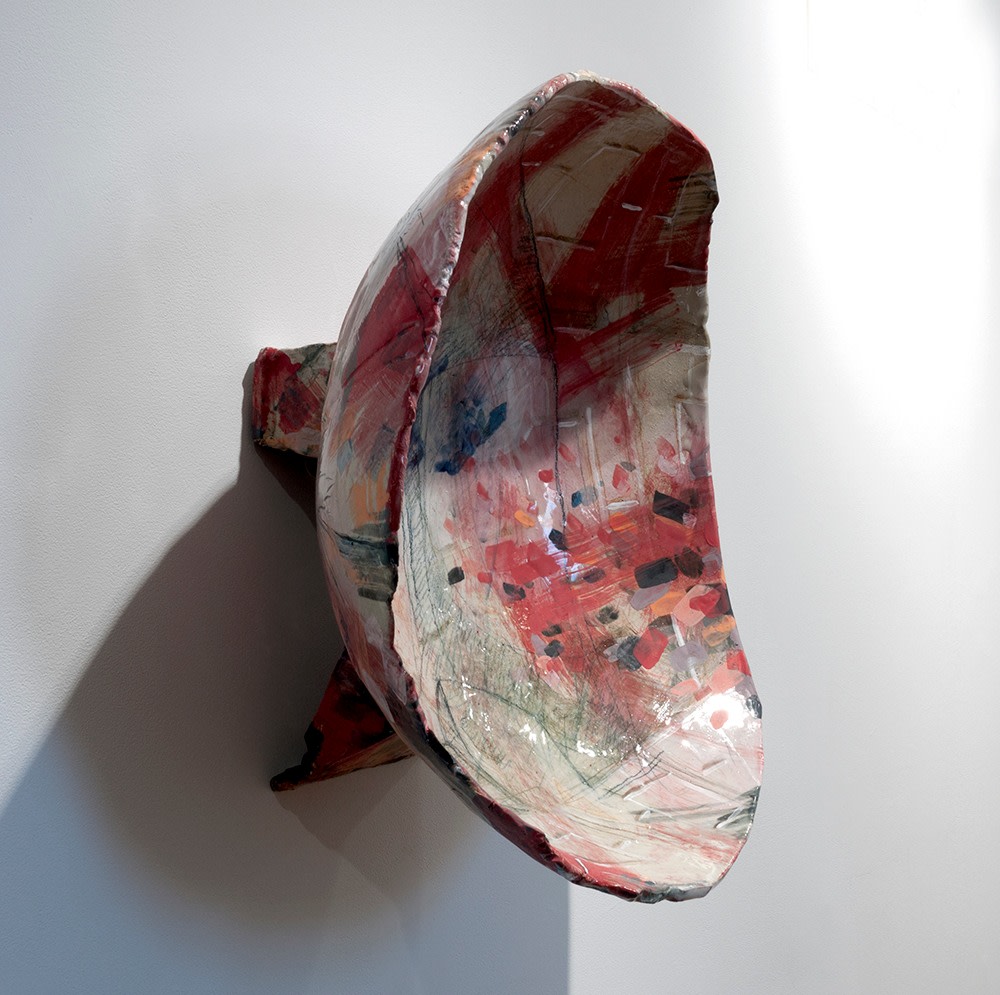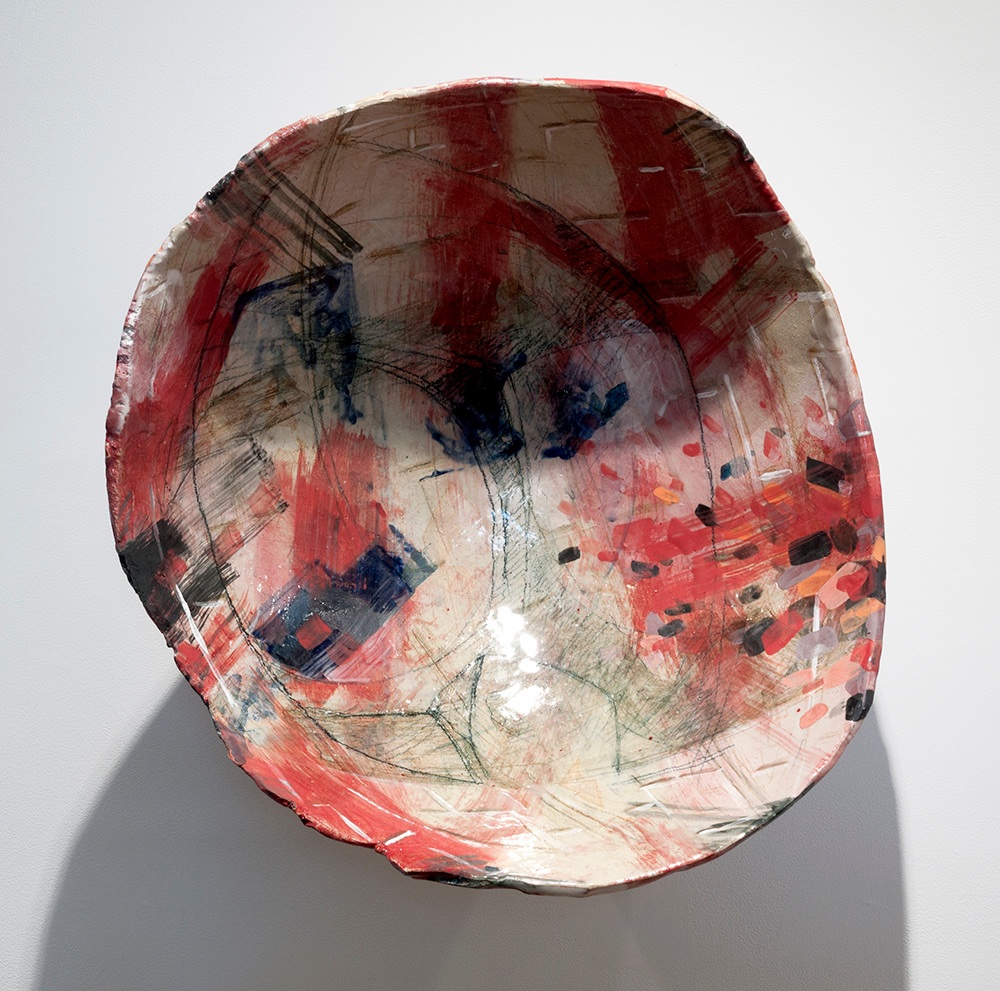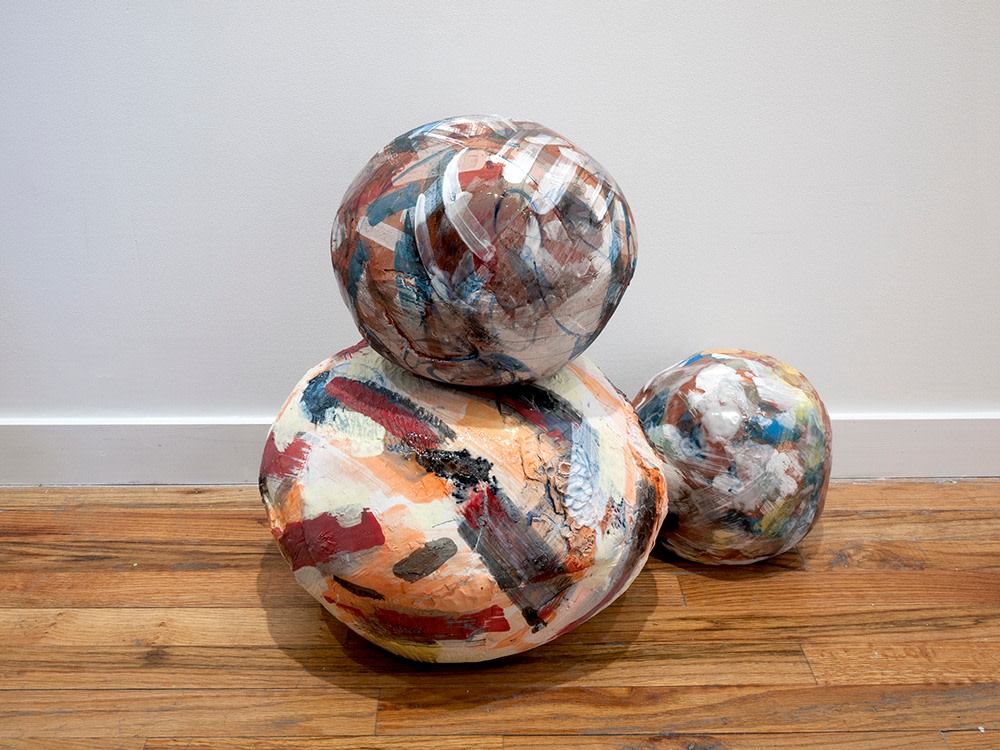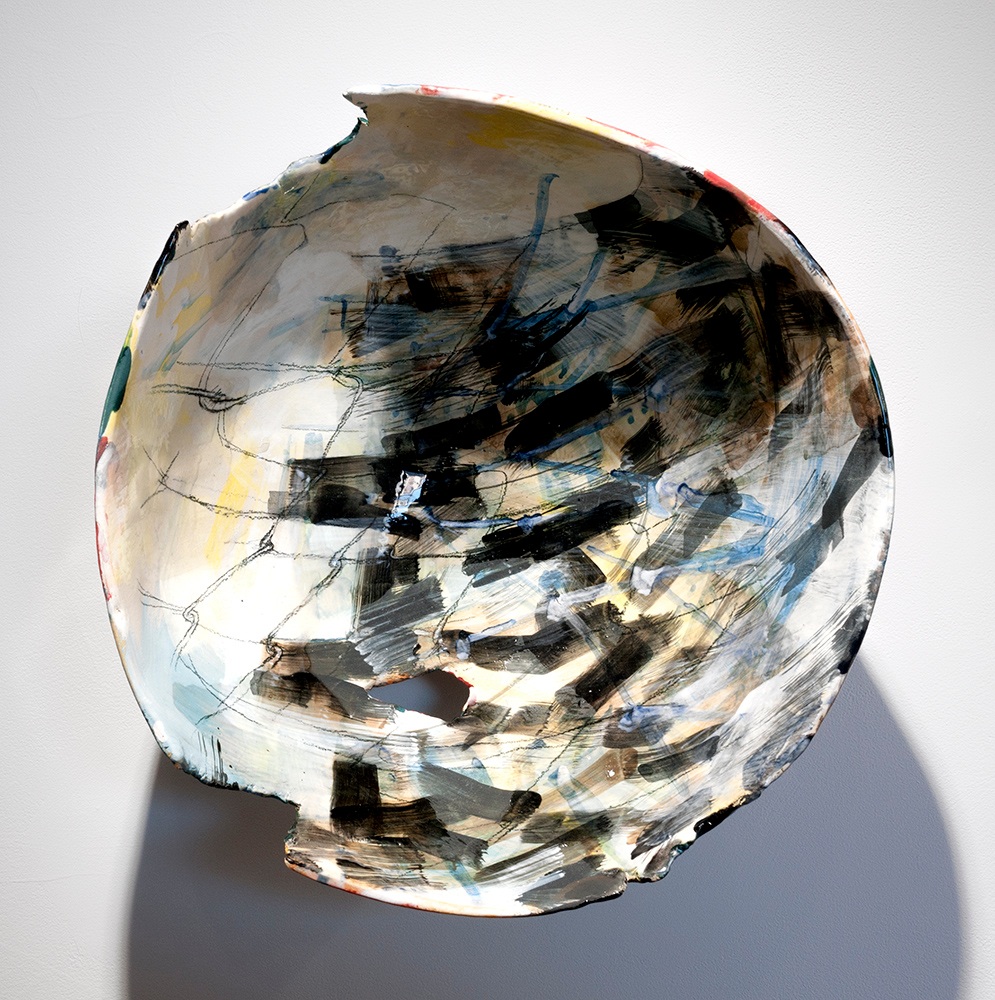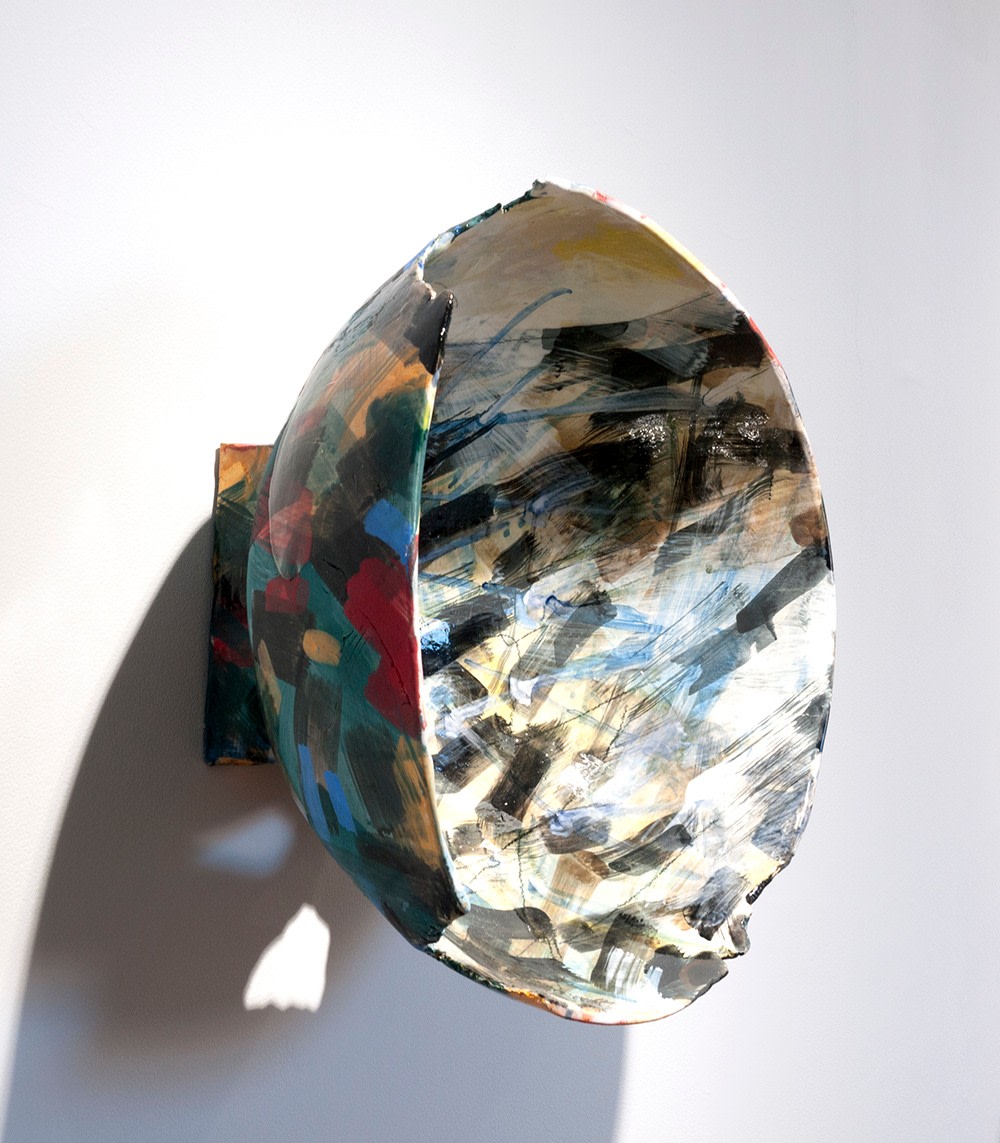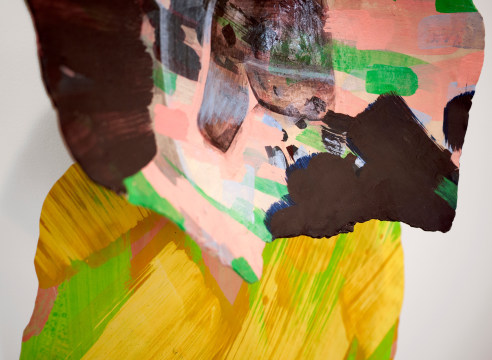
Rachael Gorchov - Organic Geometry
March 24 - April 23, 2017
Opening Reception: Friday April 24th, 6 - 9 PM
OJG is pleased to present “Organic Geometry”, featuring a new ceramics by Rachael Gorchov.
Gorchov considers herself primarily a painter, albeit one working with dimensional forms. For the the last several years she has concentrated on two series: concave shapes that are mounted to the wall, and rock-like forms that inhabit the floor with their own painted cast-shadows. Most often these hybrid works have been made through a combination of mixed-media, including plaster and papier-mâché clay. The wall-works utilize an irregular, half-egg shell framework, which is covered in colorful & gestural marks that hide within them landscapes, building facades and gardens. These images are based on drawings made on the artist’s travels.
This creation of this newest series coincided with Gorchov’s 2016 residency at the Hunter College Ceramics studios in New York. The works in Organic Geometry continue her earlier structural explorations, but with a more subtle approach. For instance, one notices more subdued, earthen tones than in previous works, as the artist has experimented with a number of glossy glazes, underglazes, and underglaze pencils. These substances let Gorchov experiment with the chemical nature of saturation, transparency, and finish texture that is so inherent in ceramics.
Unlike the earlier landscapes, the imagery embedded within these new forms focuses on architectural details. These are based on drawings Gorchov made following a recent trip to Europe, where she explored both the interior and exterior details of a number of Renaissance and Baroque buildings. The coffered ceilings, vaulted archways, colonnades and naves that she documented there were a natural matrix to incorporate in her practice. First taking photographs on-site, the artist returned to the studio to make drawings by interpreting the photographs through fisheye lens settings on her iPhone to reference a Claude Glass, a 18th century observation device. The finished works combine aspects of several drawings. These skewed constructions and foreshortened perspectives are then placed within the convex ceramic forms. In this way, imagery, brushstroke and shape all coalesce into a uniquely warped mise en scène.
Rachael Gorchov takes a different approach to works that are meant to be placed on the floor. Here, she abandons the convex shapes for more organic, boulder-like semblances with overall coloring and patterns. In addition, the artist plays with the notion of the object’s exaggerated shadow, creating a painting of contrasting gestural brushstrokes or colors that is then printed and laid on the floor underneath, and extending from, the object. While both series share sculptural aspects, they enjoy as many differences as they do similarities. The wall shapes take advantage of the natural shadows that fall within them, their contours help define the images seen within, and their hard surfaces alter the audience’s sound experience. The floor pieces turn the idea of shadow into something all their own. They do not collect or reflect one’s vision, but are meant to be looked down on, and constantly keep us moving about them.
Once they have been fully considered, Rachael Gorchov’s objects reveal themselves to be carefully mediated studies: of art and architecture history, of place, perspective and gesture.

